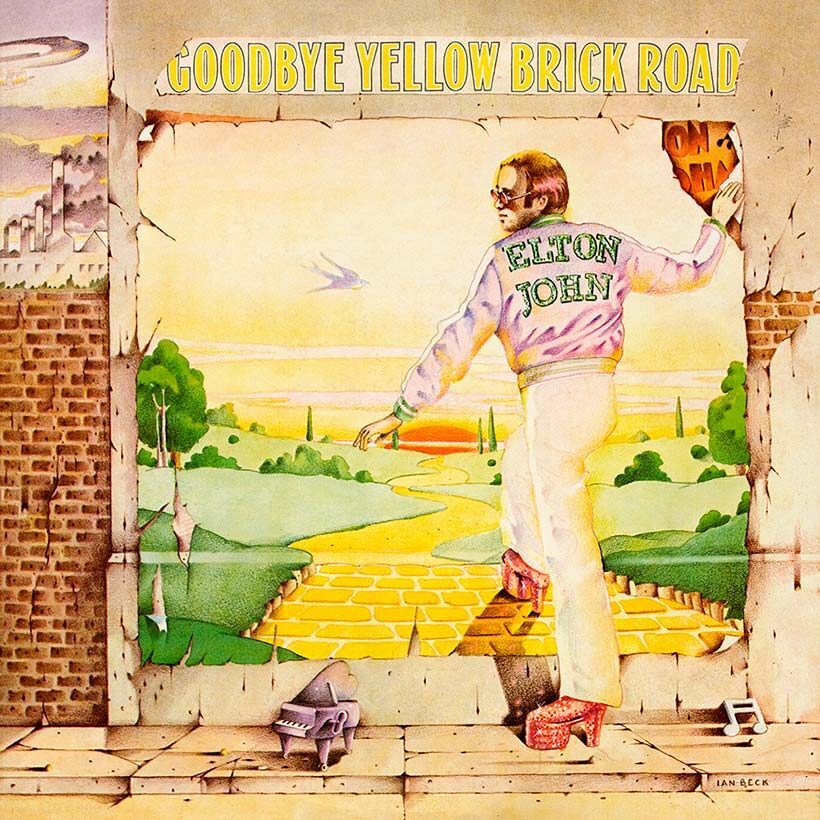Elton John’s Goodbye Yellow Brick Road remains one of the icon’s greatest records
Joseph Ryan-Hicks says hello again to Goodbye Yellow Brick Road by Elton John.

A few albums require no introduction and Elton John’s Goodbye Yellow Brick Road is one of them. When it was released half a century ago in October 1973, Elton was already on a meteoric rise.
With six US Top 10 albums under his belt, the Rocket Man’s seventh studio album propelled him into the stratosphere. Sounding more like a greatest hits collection, the 17-track epic sold 30 million copies and is considered the singer’s magnum opus.
The album’s Wizard of Oz-referencing title is a perfect tease for what is to come: a camp, funny, sad escapade that culminates in the realisation that not everything is as it seems. Kicking off with the 11-minute prog rock masterpiece ‘Funeral for a Friend/Loves Lies Bleeding’, it’s Elton and long-time collaborator Bernie Taupin at their most experimental. But this is by no means a self-indulgent album.
“I used to go out with Divine and dance at clubs”
Where Elton and Bernie’s artistry shines brightest is on their more direct, radio-friendly singles. The beautifully delicate ‘Candle in the Wind’ is one of the record’s monster hits. Loosely inspired by Marilyn Monroe, the piano ballad took on a new life in 1997 when it was re-recorded for Princess Diana’s funeral and became the UK’s biggest-selling single of all time. Lyrically, the track explores the glamorisation of death and is for many Elton’s signature tune.

Ranked among Rolling Stone magazine’s 500 Greatest Songs of All Time, ‘Bennie and the Jets’ dials up the flamboyance, telling the tale of a fictional punk band from outer space fronted by an androgynous female singer. “She’s got electric boots, a mohair suit / You know I read it in a magazine” sings Elton as he examines 70s glamour and greed. ‘Saturday Night’s Alright (for Fighting)’ is decidedly more straight down the middle; the hooky number is a throwback to 50s rock’n’roll with Elton singing about getting as “oiled as a diesel train”.
“Perhaps this isn’t really goodbye, but simply au revoir” – Elton John
Among the album’s lighter moments, more contemplative thoughts pervade Bernie’s lyrics and are telling of the pair’s headspace during its recording. Reflecting on this period, Elton said in 2014: “I was always the one that said, ‘Let’s go out!’ I used to go out with Divine and dance at clubs. We’d both burn the candle at both ends, but I did it far more than he did.” These feelings reach a climax on the album’s title track as Elton sings of wishing to return to “the farm” — a reference to the home of The Wizard of Oz protagonist, Dorothy.
Raising millions in the fight against Aids and establishing himself as a fierce LGBTQ+ activist and icon, Elton’s contribution also goes far beyond just music. But as he prepares to bow out of the spotlight on a farewell tour, one can’t help but feel the world would be a little less bright without this man and his piano. But as the lore of pop would have us believe, nothing is forever. Perhaps this isn’t really goodbye, but simply au revoir.
This feature first appeared in Attitude’s May/June issue – out now.
